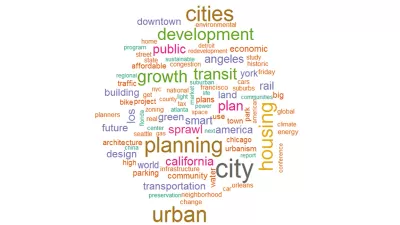If you are applying to graduate school in planning, how much do GREs matter? Like many things in planning the answer varies with the person and program. Below I provide some general advice.

If you are applying to graduate school in planning, how much do GREs matter? Like many things in planning the answer varies with the person and program. Below I provide some general advice.
-
GREs matter more for those without much work experience, particularly those coming straight from an undergraduate program.
-
They can matter quite a bit in doctoral admissions where the competition is fierce.
-
If English is not your first language it helps to do well in the verbal and analytical sections.
-
GREs are only part of the picture in admissions along with statements of purpose, letters of recommendation, planning-related experience, and undergraduate performance. Admissions committees look at the big picture.
-
This also means that if you have stellar GRE scores but your statement of purpose has little to do with planning and you have no relevant work or volunteer experience then admissions committees will be unlikely to admit you.
-
For those interested in assessing their scores, some schools, such as USC, provide guidelines which can be helpful. However, it is important to remember that most schools, including USC, take a holistic view placing GREs in context.
I have previously provided other advice on getting into graduate school in planning: how to decide if planning is for you, whether to get work experience before you go to grad school, find the right program, understand the basic philosophies underlying graduate education in planning, use social media to find out about schools, apply, write a statement of purpose, obtain letters of reference, assess your undergraduate transcripts, visit successfully, and decide which offer to take up including how to assess the real costs.

Alabama: Trump Terminates Settlements for Black Communities Harmed By Raw Sewage
Trump deemed the landmark civil rights agreement “illegal DEI and environmental justice policy.”

Planetizen Federal Action Tracker
A weekly monitor of how Trump’s orders and actions are impacting planners and planning in America.

Why Should We Subsidize Public Transportation?
Many public transit agencies face financial stress due to rising costs, declining fare revenue, and declining subsidies. Transit advocates must provide a strong business case for increasing public transit funding.

Understanding Road Diets
An explainer from Momentum highlights the advantages of reducing vehicle lanes in favor of more bike, transit, and pedestrian infrastructure.

New California Law Regulates Warehouse Pollution
A new law tightens building and emissions regulations for large distribution warehouses to mitigate air pollution and traffic in surrounding communities.

Phoenix Announces Opening Date for Light Rail Extension
The South Central extension will connect South Phoenix to downtown and other major hubs starting on June 7.
Urban Design for Planners 1: Software Tools
This six-course series explores essential urban design concepts using open source software and equips planners with the tools they need to participate fully in the urban design process.
Planning for Universal Design
Learn the tools for implementing Universal Design in planning regulations.
Caltrans
Smith Gee Studio
Institute for Housing and Urban Development Studies (IHS)
City of Grandview
Harvard GSD Executive Education
Toledo-Lucas County Plan Commissions
Salt Lake City
NYU Wagner Graduate School of Public Service






























